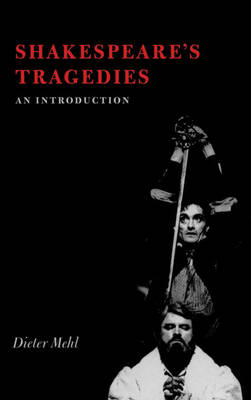
- Afhalen na 1 uur in een winkel met voorraad
- Gratis thuislevering in België vanaf € 30
- Ruim aanbod met 7 miljoen producten
- Afhalen na 1 uur in een winkel met voorraad
- Gratis thuislevering in België vanaf € 30
- Ruim aanbod met 7 miljoen producten
Zoeken
€ 149,95
+ 299 punten
Uitvoering
Omschrijving
This book introduces the students and the general reader to Shakespeare's tragedies and to the problems of interpreting them. Traditional questions and answers regarding the texts, as well as their realization in performance, are examined, and it is shown how the plays do not offer easy of final solutions to the tragic dilemmas presented, but engage the reader and spectator in a debate with more than one possible outcome. Each of the tragedies is examined separately, with discussions of its provenance, its stage history and critical history, and of the problems associated with its categorization as part of the 'tragic' genre. He refers widely to a representative body of Shakespearian criticism, and provides a useful bibliography which indicates the best sources for a reader wishing to pursue individual themes further. The book is carefully written and should serve as a valuable introduction for anyone wanting to gain a sense of the richness of the plays and the diversity of debate and interpretation that has surrounded them.
Specificaties
Betrokkenen
- Auteur(s):
- Uitgeverij:
Inhoud
- Aantal bladzijden:
- 284
- Taal:
- Engels
Eigenschappen
- Productcode (EAN):
- 9780521304238
- Verschijningsdatum:
- 30/01/1987
- Uitvoering:
- Hardcover
- Formaat:
- Genaaid
- Afmetingen:
- 152 mm x 229 mm
- Gewicht:
- 585 g

Alleen bij Standaard Boekhandel
+ 299 punten op je klantenkaart van Standaard Boekhandel
Beoordelingen
We publiceren alleen reviews die voldoen aan de voorwaarden voor reviews. Bekijk onze voorwaarden voor reviews.











